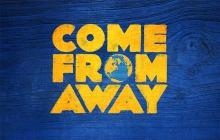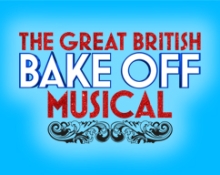Show History
History
Inspiration
Little Shop Of Horrors, with book and lyrics by Howard Ashman and music by Alan Menken, is based on the low-budget 1960 black comedy film of the same name. Ashman and Menken made many changes from the original film, such as moving the location from Los Angeles to New York and eliminating many characters in lieu of a smaller ensemble. Arguably the largest change is in the ending, where instead of Mushnik and Audrey surviving to see the plant's carnivorous activities (as in the film), nearly all the characters are devoured by the plant.
This musical was only the second collaboration between Ashman and Menken, the first being a 1979 stage adaptation of a Kurt Vonnegut novel. In writing the book, Ashman chose to use the frame of the story to satirize many different topics, including: science fiction, "B" movies, musical comedy, and the Faust legend (in which a man sells his soul to the Devil). In his music, Menken used many of the musical styles of the early 1960s, including rock and roll, doo-wop , and Motown.
Productions
Little Shop Of Horrors premiered on May 6, 1982 at the Workshop of the Players' Art Theatre. It then opened off-Broadway at the Orpheum Theatre in New York City's East Village on July 27 of the same year. The production was directed by book writer and lyricist Howard Ashman and starred Lee Wilkof, Ellen Greene, and Ron Taylor. It closed on November 1, 1987 with 2,209 performances under its belt. When propositioned for a Broadway transfer, Ashman elected not to, claiming the show was perfect for where it was. The musical also had its West End premiere at the Comedy Theatre, produced by Cameron Mackintosh. It ran for 813 performances from January 1, 1983 to October 5, 1985 and starred Barry James and Ellen Greene (reprising her role from New York).
A revival of Little Shop Of Horrors was planned in 2003 with an ultimate goal of Broadway. A pre-Broadway tryout began at the Miracle Theatre in Coral Gables, Florida on May 16, 2003. Several people from the original 1982 production were involved; Lee Wilkof (the original Seymour) was cast as Mushnik, Connie Grapo (Wilkof's wife and the assistant to Ashman on the original production) directed, and Martin P. Robinson (the original designer of the Audrey II puppet) enlisted friends from the Jim Henson studio to create more high-tech puppets. In addition to Wilkof, the production featured Hunter Thompson and Alice Ripley. Mixed reviews caused the production to lose funding, but Broadway director Jerry Zaks quickly took the helm. The revival finally opened on Broadway at the Virginia Theatre on October 2, 2003, featuring a completely new cast with the exception of Thompson. It utilized a bigger theatre to expand its instrumentation and buffing/writing new songs entirely. It closed on August 22, 2004 after 372 performances.
The musical has seen subsequent success after the Broadway revival. A U.S. national tour ran from August 10, 2004 to April 16, 2006. A London revival started running on November 17, 2006 at the Menier Chocolate Factory, featuring a new Audrey II design. Becoming a success, the production transferred twice in its run, to both the Duke of Work's Theatre and the Ambassadors Theatre, before closing on September 8, 2007. A UK touring production then launched in 2008.
Cultural Influence
- An extremely popular film adaptation of the musical was released in 1986. Directed by Frank Oz, it featured a screenplay entirely written by Howard Ashman and featured a new song written by Ashman and Alan Menken, "Mean Green Mother from Outer Space" (which went on to be nominated for an Academy Award). It starred Rick Moranis, Ellen Greene (once again transferring from the original production), Vincent Gardenia, and Steve Martin. After the musical's ending tested badly with audiences, the filmmakers chose to rewrite the ending completely, with a happy resolution for Seymour and Audrey. The film received many positive critical accolades.
- A Saturday morning animated cartoon entitled Little Shop, based on the musical, ran for one season in 1991. Inspired by the success of Frank Oz's film, the cartoon toned down a large amount of the dark humor and violence, but still featured the same characters.
- By the time the original closed, Little Shop Of Horrors was both the third-longest running musical and the highest-grossing production in off-Broadway history.
- The story of the musical has been parodied in various television shows, including Family Guy, American Dad, The Grim Adventures of Billy and Mandy, and The Simpsons.
- The success of Little Shop Of Horrors put the team of Howard Ashman and Alan Menken on the map. That helped catch the attention of Disney, who hired the team to write all of the songs for the hit Disney films The Little Mermaid, Beauty and the Beast, and Aladdin.
Trivia
- Though not winning any major awards, the revivals of Little Shop Of Horrors have garnered a good amount of nominations. With the 2003 Broadway revival, Hunter Thompson was nominated for both the Tony Award and Drama Desk Award for Best Actor in a Musical for his performance as Seymour. The production itself also received an Outer Critics Circle nomination for Outstanding Actress in a Musical (Kerry Butler as Audrey) and Outstanding Revival of a Musical nominations for both the Outer Critics Circle and Drama League awards. With the 2006 West End Revival, the production was nominated for three Olivier Awards, including Best Musical Revival, Best Actress in a Musical (Sheridan Smith as Audrey), and Best Performance in a Supporting Role in a Musical (Alistair McGowan as Orin, et al).
- Despite only having its Broadway premiere in 2003, the Tony Award system felt that the commercial success of both the off-Broadway production and the feature film allowed it to qualify for nomination under the revival category.




